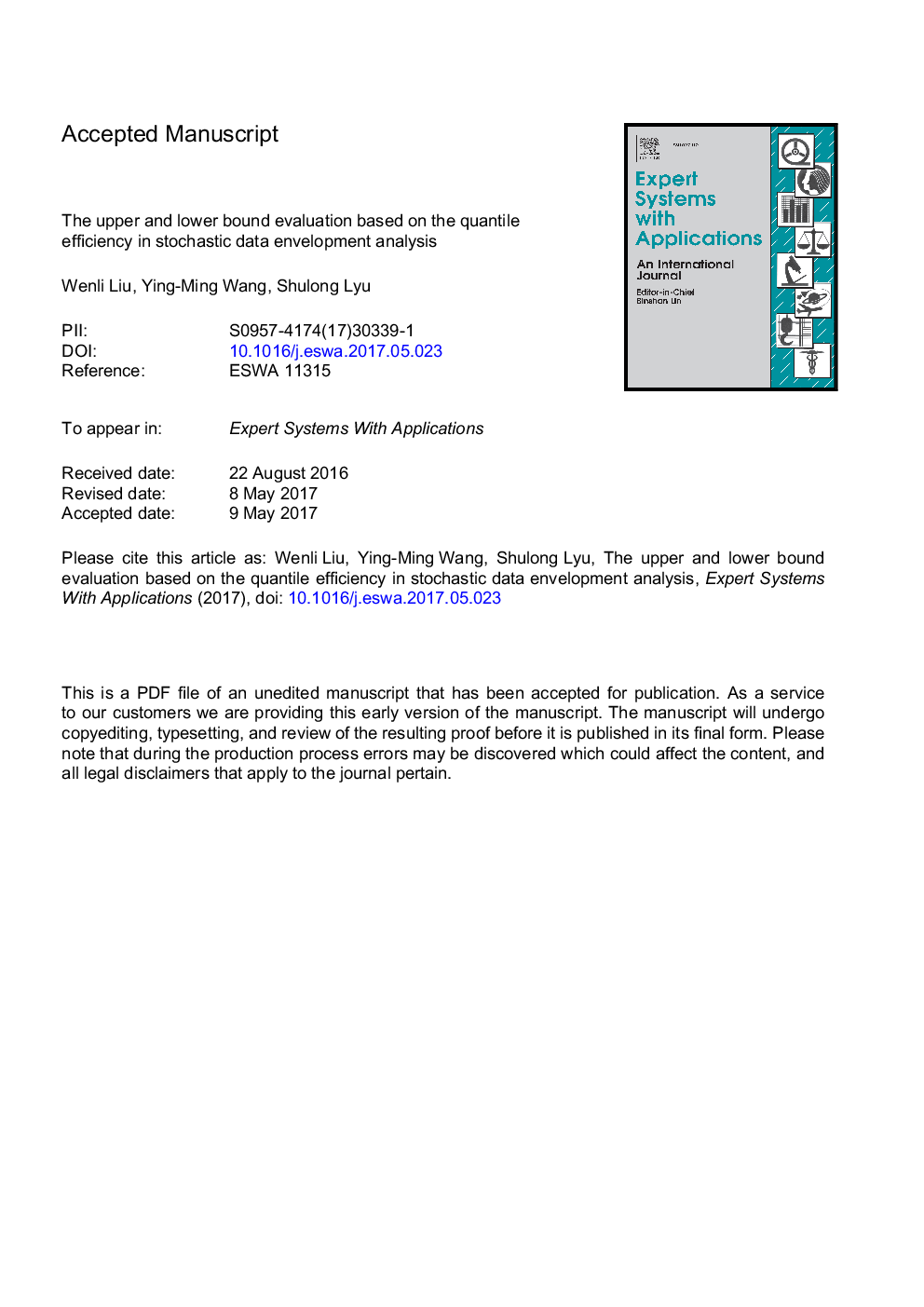| Article ID | Journal | Published Year | Pages | File Type |
|---|---|---|---|---|
| 4943134 | Expert Systems with Applications | 2017 | 27 Pages |
Abstract
Data envelopment analysis (DEA) has been extended to handle random inputs and outputs by using chance constrained programming. In this paper, for DMUs with random inputs and outputs, we aim to measure a kind of relative efficiency, and achieve it from the optimistic viewpoint and the pessimistic viewpoint respectively. Considering the quantile of the distribution of the weighted output-input ratio of each DMU, we develop two stochastic DEA models to obtain the upper and lower bounds of the quantile efficiency under a constraint, and then achieve an interval efficiency evaluation. The best quantile efficiency and the worst quantile efficiency achieved by our models are closely similar to the CCR efficiency and belong to relative efficiencies. Further, the deterministic equivalents of our models are developed when the input and output vector of each DMU follows a multivariate joint normal distribution. Finally, three examples are presented to illustrate the performance of our approach.
Related Topics
Physical Sciences and Engineering
Computer Science
Artificial Intelligence
Authors
Wenli Liu, Ying-Ming Wang, Shulong Lyu,
